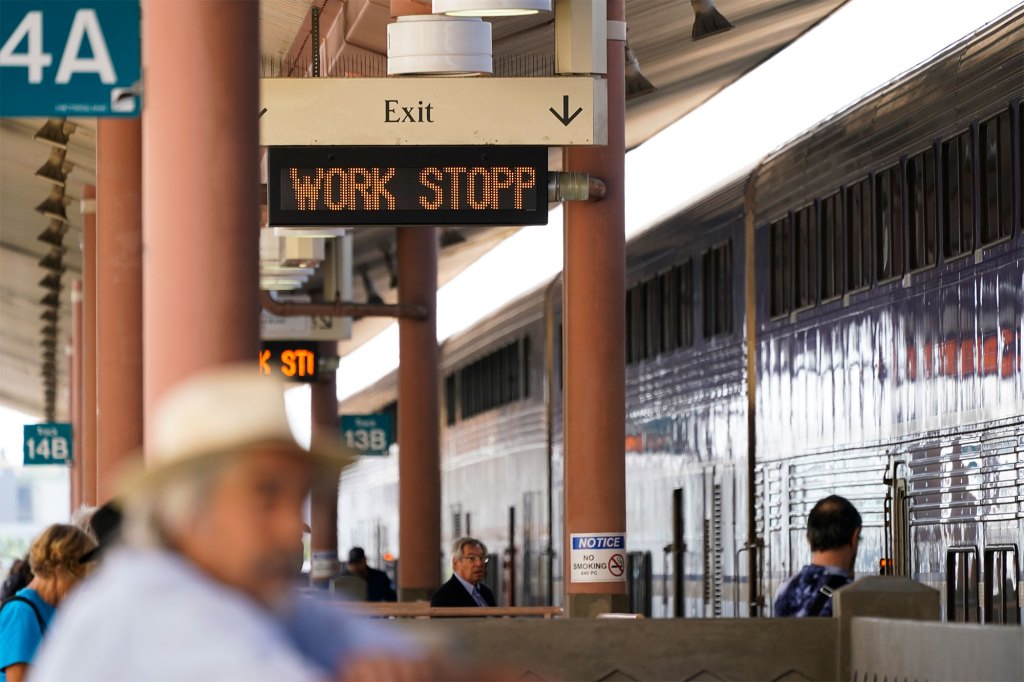Amtrak cancels long-distance trains ahead of impending strike
Amtrak announced that all long-distance passenger trains have been canceled ahead of a looming freight rail worker strike.
While Amtrak workers are not involved in the ongoing labor dispute, over 21,000 of track miles outside of the northeast corridor — Boston to Washington D.C. — are owned and maintained by freight companies.
Members of one railroad workers union rejected a tentative deal with the country’s largest railroad companies on Wednesday, which include Union Pacific, Berkshire Hathaway’s and Norfolk Southern. Two unions ratified agreements and three others are holding out at the bargaining table ahead of Friday — when union members are legally allowed to strike per federal guidelines.
Amtrak announced the additional cancellations of Wednesday after it canceled 10 long-distance trains earlier this week.
The trains to be canceled on Thursday are the Auto Train (Washington to Sanford, Florida), Capitol Limited (Washington to Pittsburgh), Cardinal (Washington to Chicago) and the Palmetto (south of Washington to Savannah, Georgia).
Other commuter railways such as Chicago’s Metra have also announced they will be forced to begin cutting service on Thursday.
There are 12 unions representing 115,000 workers who must vote to approve the tentative deals. So far, nine have agreed.
The deals are based on recommendations by the Presidential Emergency Board, appointed by President Joe Biden this summer, that called for 24% raises and $5,000 in bonuses in a five-year deal, retroactive to 2020.
The unions who represent conductors and engineers who drive trains have held out hoping the railroads address additional issues, such as their strict attendance policy making it difficult to take time off. They have said that the railroad’s decision to slash its workforce by one-third over the last six years have made the job even harder.
They have demanded the railroads provide unpaid leave time so workers could tend to their personal business, such as doctor’s appointments, without being penalized.
The strike could put additional strain on the already log-jammed supply chains and could escalate already high inflation costs. Even a brief shutdown would dramatically disrupt the shipping of fuel, chemicals, foods, cars, coal and other imported goods and products.
According to The Association of American Railroads trade group, a strike would cost the economy an estimated $2 billion a day.
The Business Roundtable declared that a strike would be an “economic catastrophe.”

Analysts have warned of gasoline shortages in the Northeast if workers strike, as 300,000 barrels of crude oil are transported by rail every day, according to the American Fuel & Petrochemical Manufacturers.
The Biden Administration has been pressuring the unions and freight companies to come to an agreement to avoid a strike and are working on a plan to ship goods via trucks and plan if workers walkout Friday.
Congress has the power to block the strike, as it has done in past national rail-labor disputes, but it’s not clear whether they would act in this instance ahead of midterm elections.
With Post Wires
Read the full article Here


